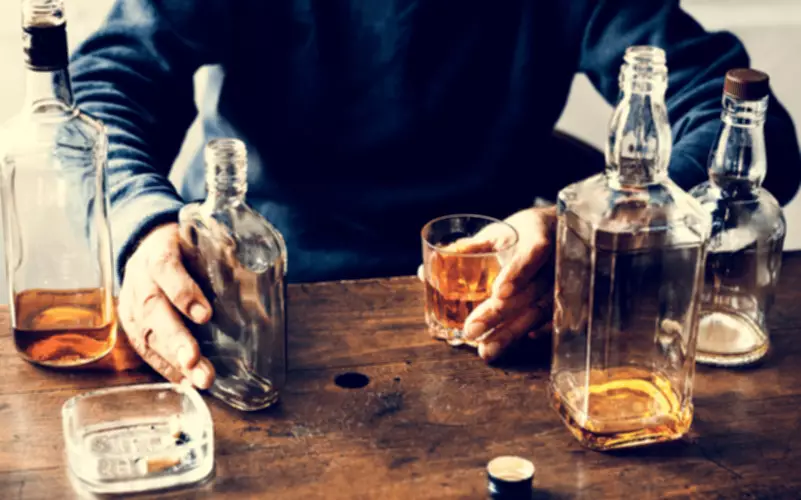Content
These practices will allow the individual to focus and keep their mindset on the present moment. When practicing healthy ways to manage triggers, you can detach from any painful or stressful situations that may create triggers. The more strategies you have available to you, the better off you will be in managing your triggers. In addition, the more coping strategies you have, the more likely you will be able to prevent the development of unhealthy coping strategies, such as alcohol and drug use.
If you or a loved one struggles with addiction to drugs or alcohol, you are not alone. At Canyon Vista Recovery Center, located in Mesa, Arizona, you will learn the skills needed to gain sobriety. Using a combination of medical, clinical, psychiatric, and holistic approaches, our highly skilled professionals will help you heal your mind, body, and spirit. Sometimes there are physical things or items that create the desire to use in an individual or otherwise trigger their addiction.
Looking for a place to start?
” and this will assist with the everyday stress of life to help you maintain sobriety. Don’t expect perfection while trying a new coping skill; developing these skills will take time. Stay committed by strengthening them and continuously seek new coping skills that are out of your comfort zone.
After all, someone else in the same situation at work might simply accept the extra work and adapt to the change. Our program addresses physical, nutritional, chemical, environmental, emotional, social, spiritual, lifestyle values, and challenges. Those who struggle with substance use disorder or alcohol use disorder will sometimes find themselves thinking fondly about past use. This website utilizes various technologies that are meant to make it as accessible as possible at all times. We utilize an accessibility interface that allows persons with specific disabilities to adjust the website’s UI (user interface) and design it to their personal needs. Let us walk alongside you on the path to sobriety and wellness.
Relapse Triggers
The National Institute on Drug Abuse (NIDA) reports that 40 to 60 percent of people treated for substance use disorders relapse. Emotions that act as internal triggers can be negative, positive, or neutral. https://ecosoberhouse.com/article/recommended-vitamins-for-recovering-alcoholics/ Internal triggers are emotions, feelings, thoughts, and memories that make the person want to use alcohol or drugs. It is more difficult to deal with internal triggers than with external ones.
- In many cases, when you feel “normal” again, you might be overly confident that you can handle being in situations that serve as external triggers.
- Recognition and avoidance of potential triggers will be a key part of any recovery process.
- However, there is no doubt that addictive disorders have a strong subjective component that is not fully fitted with the present models.
- If you are in a self-help program, ask for help in a meeting or with a confidant.
Get out a sheet of paper and write down as many internal and external triggers as possible. Keeping track of your experiences and what was happening before you began to experience symptoms can help you better understand your triggers. Other common triggers may include exposure to people or places familiar with that experience. Struggling with finances, family or other stressful situations can bring back the intense need to use as a way to soothe those thoughts and feelings and to feel good for a few moments. Friends and family may not understand the consequences of negative behaviors toward people in recovery. These behaviors can make the individuals feel alienated and push them toward substance use.
What Is a Trigger?
People at risk of a relapse should avoid stressful situations that are likely to push them to use drugs and alcohol. The research maintained that subconscious cues are dangerous because they reinforce the patient’s desire to restart using drugs internal and external triggers without them being aware of it. Researchers highlighted the importance of avoiding the people, places and things that remind patients of their former lifestyle. Attending therapy is also a good way to help with processing internal triggers.
Unchecked feelings could develop into bad behavior like drinking or using to cope with the suppression. Nutrition is essential to the recovery process not only to feel better but to avoid further damage to your body. When you consume too little calories, your muscles will break down. The heart is also a muscle, and when it breaks down, a person’s pulse and blood pressure can drop to life-threatening levels.
The Subjective Concept and Neurobiology of Stress and Addiction
A study from Marquette University pointed out that stress rendered people in recovery more vulnerable to other relapse triggers. Researchers followed the cocaine use patterns of stressed and unstressed rats and used a low dose of cocaine as a trigger. The stressed rats’ responses to the trigger mirrored those of people during relapse.

The opposite of numbing yourself is reconstructing your life in some way to eliminate those triggers. You may also respond to certain people or events in ways that don’t seem normal. That can be an indication of an underlying trigger that you haven’t uncovered yet.
